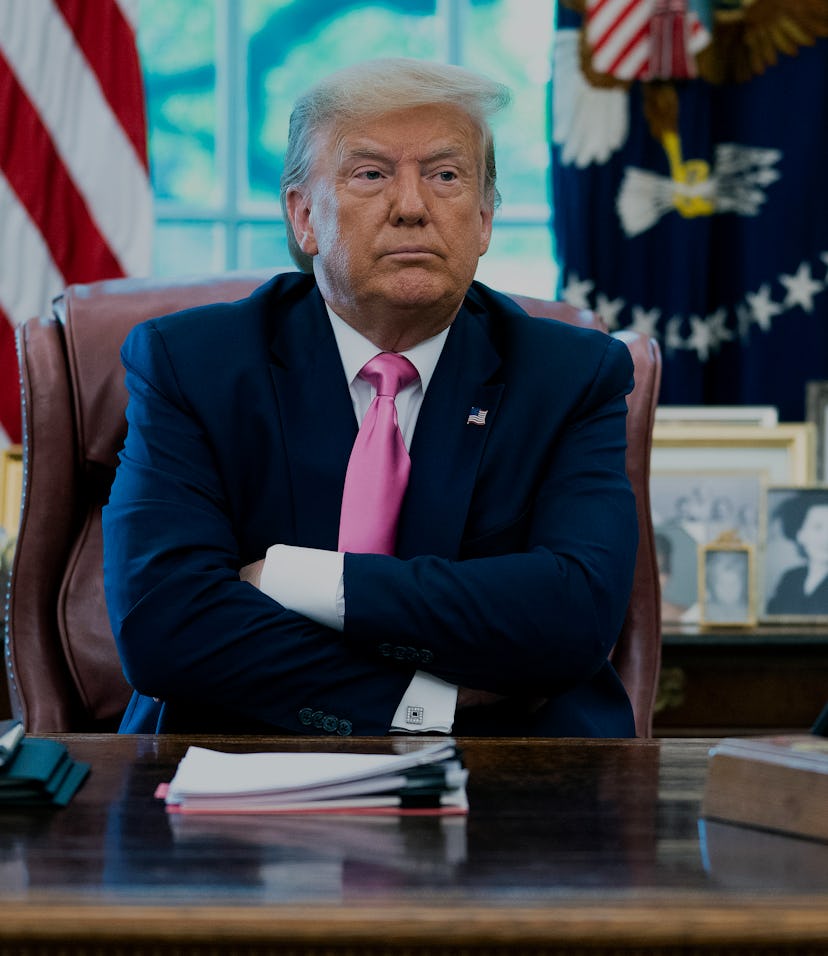Culture
Facebook still can't fact-check Donald Trump without tiptoeing around
Corrections need to be clearly stated or they read as endorsements.

Fact-checking, like its hate speech policy, is one of Facebook's most contentious public issues. The social media platform's ongoing position on correcting false information is still proving to be inadequate, according to critics. One of the most recent examples demonstrating this failure unsurprisingly involves the president of the United States.
Key background — On Facebook, Donald Trump recently posted a warning about a "corrupt election," which has been repeatedly debunked by multiple sources. But that refutation never comes across as crystal clear on Facebook where Trump said, "Mail-in voting, unless changed by the courts, will lead to the most CORRUPT ELECTION in our nation's history!" The president also tagged #riggedelection.
Histrionics around elections is nothing new. But this would have been a golden opportunity for Mark Zuckerberg to effectively nip the false claim in the bud. Instead, Facebook simply links a prompt to "get official voting info on how to vote in the 2020 United States election." A link then guides the user to usa.gov right under Trump's post.
How did you get this so wrong? — The entire debacle is such an example of profoundly poor design. Technically, this link-out is a disclaimer but the tone is completely lost and from a UI perspective, as reporters on Twitter have noted, the lack of judgment cast upon Trump's post can easily be read as an endorsement, not correction, of his comment. Andre Plaut, the founder of the tech ethics platform A Human Machine, succinctly summarized the issue:
This kind of goldilocks approach that tries to give out accurate information without contradicting and therefore upsetting Donald Trump doesn't work. If anything, it looks like a message endorsing Trump's views. It's critical that Facebook clearly label this post as false.
We shouldn't be surprised — None of this is shocking. In late June, Zuckerberg made an announcement about platform-wide moderation changes, including the step to heighten awareness around voting. It sounded noble; helping the users on the world's busiest social network better understand elections could prove to be a social good. But even at that time, it was clear that Zuckerberg would only label posts, not fact-check them. And that distinction is most evident in this particular scenario.
Of note, the Facebook CEO stated, "Because of the difficulty of judging this at scale, we are adopting a policy of attaching a link to our Voting Information Center for posts that discuss voting, including from politicians. This isn't a judgment of whether the posts themselves are accurate, but we want people to have access to authoritative information either way." Emphasis ours.
Despite his passionate claims about promoting truth over falsehoods, Zuckerberg's approach is a stunning failure. At best, the link provides some context. At worst, it reads like approval.